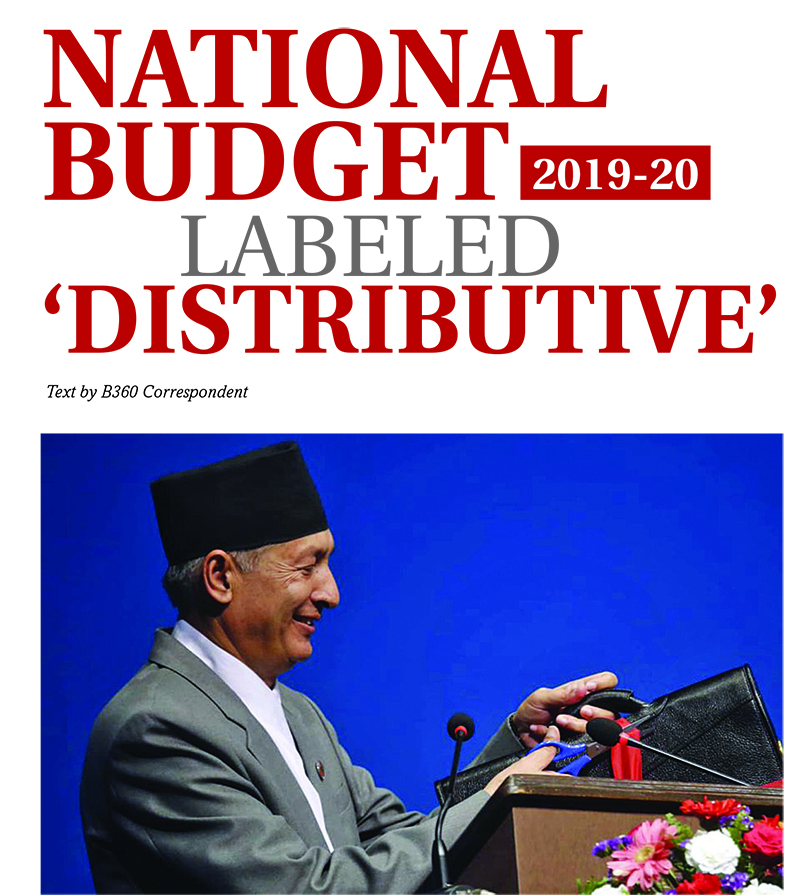
Text by Sajeet M. Rajbhandari
Narottam Aryal,
Executive Director, King’s College
Narottam Aryal states that he is rather critical about the budget allocation. Aryal goes on to explain that while this year’s total budget is substantial, the “big budget” display has become a national trend of sorts where policymakers are unable to come through on their promises and the national expenditure always falls short. Aryal tells us that he lacks excitement over the budget as past trends have often shown us that there is severe lack of execution. He also enunciates that while the education sector was allocated the most significant portion of the budget, it will never get the right delivery. Aryal shares that the budget has been presented without clarity as to what is the administration’s top priority and how it intends to accomplish it. He explains that funds are always limited; and for the nation to make optimum use of its funds, the government needs to be very explicit about its plans and resources.
Shikhar Pandit
Managing Associate, Gandhi & Associates

Shikhar Pandit points to the new things in this year’s budget. He says that it can be seen trying to promote local businesses and improve exports. He explains that startups and creative businesses have been given numerous exemptions on taxes. However, Pandit also notes that there are some issues that might discourage businesses. He acknowledges that the requirement for all employees of a business to be PAN registered is definitely going to make an impact on the private sector. He believes that employee salary may no longer be included as expenditure by businesses as it increases the tax burden.
Furthermore, Pandit raises the question, “Do we have the money to be spent, and how will it be spent?” He explains that the budget has been constantly under-utilised in past years. “If we only spend Rs. 20 of a Rs. 100 budget, it’s kind of pointless to increase the budget to Rs. 150.” Pandit illustrates. He also notes that the administration could be environmentally conscious and have increased customs on such goods that harm the environment.
Ajit Bikram Shah
Director and CEO, Lotus Holdings
Ajit Bikram Shah feels that the way the budget is put together for this fiscal is rather similar to the budget last year, besides the fact that this year the budget is about 14% larger. Shah concedes that the government can be seen trying to mitigate the shortfall of foreign grant through stringent tax collection. However, he also points out that the strong focus on educational spending and the emphasis on infrastructural development such as airports, highways, energy and water supply is highly commendable. Shah continues that the budget seems to have prioritised improving the quality of fundamental rights of its citizens such as education, health, banking and insurance. He also shares his optimism given that the GDP growth estimates are higher than last year and inflation is lower than last year. When asked about what this is likely to mean for new businesses and investments, Shah says, “I think the current government has never been stronger in the last 25 years. In addition to this, the neighboring countries have been very stable as well. This definitely is going to encourage business and investments that have a longer gestation period to produce their returns. These types of business haven’t been able to thrive before due to an unstable government.”
Shah also stresses on the importance of FDI. He clarifies that Nepal does not have enough capital to take on larger development projects which is why exports are very important. Shah states that the budget should have included incentives for export-based industries and a foreign currency risk hedge for FDI to tackle trade deficit in the country.
Niraj Khanal,
CEO, Antarprerana

Niraj Khanal is satisfied that the national budget for this fiscal year presents some positive things for startups. Khanal says that taxes on such businesses have become more reasonable and the government is beginning to recognise businesses based on creativity and innovation. While this is welcoming, Khanal still remains skeptical about how effective the budget will actually be. He recounts past instances in which policymakers failed to deliver results. He points out that while the government today is probably one of the most stable ones in recent years, the rest of the administrative workforce still lack competency. Khanal also expresses concerns regarding the confusing nature in which the budget and other administrative policies have been written. He speaks out about the need for clarity on directives and laws which often tend to lack context. Khanal also debates that while the budget is supposed to have been designed to provide a better medium for development through all sectors; it only seems to cover popular themes and not niche categories of development.
Amun Thapa
CEO, Sastodeal
For Amun Thapa, a concern in the national budget is the difference between current expenditure and capital expenditure. Thapa believes that for a nation that has only recently finalised its constitution, a more capex-oriented investment approach would have been a better route to take. He identifies that Nepal needs strong focus and investment in physical infrastructure and believes that rather than allocating a large chunk of the budget towards current expenditure, it should have been used for constructing physical assets and infrastructure like hospitals, hydropower stations and schools.
He stresses that while allocating allowances and salary increments might benefit a substantial amount of people, it won’t do the general masses any good. Thapa compares Nepal to neighbouring India and China who are focusing on investments in sectors of infrastructure, innovation and entrepreneurship more.
He notes that the government allowing for non-registered businesses to register themselves while being exempted from past taxes is a huge step for the economy. He claims that in the e-commerce sector alone, there are over 60,000 registered and non-registered websites. This incentive from the government will encourage non-registered businesses to operate within the legal framework. Thapa goes on to discuss how Nepal has one of the youngest demographics in the world and that policymakers should keep this in mind and create job opportunities and emphasise on entrepreneurship development.









